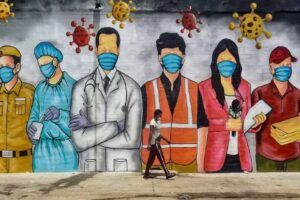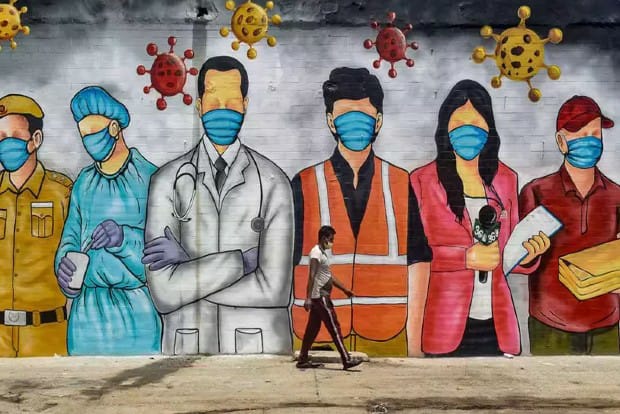 Dr Krishna Reddy Nallamalla, President, InOrder Regional Director (South Asia), ACCESS Health writes about How should India prepare itself to prevent and respond to future pandemics?
Dr Krishna Reddy Nallamalla, President, InOrder Regional Director (South Asia), ACCESS Health writes about How should India prepare itself to prevent and respond to future pandemics?
Health crises from pandemics, climate change, war and strife are accelerating in recent times. India is equally vulnerable in an interconnected and interdependent world.
How to be prepared in the ever-changing environment?
Strengthening disease surveillance:
- Traditional methods of tracking, tracing and identifying physically are used but in the digital era, it has been shown that disease surveillance can be strengthened by using digital technology. Covid 19 disease surveillance was both traditional and digital.
- In the second wave, there was more digital surveillance put to use.
- Wastewater genomic surveillance help to identify the new and emerging viruses in the environment and they must be put to best use.
National Digital Health Blueprint
- Unique health ID, national registers of health and Ayushman Bharat Digital Mission (ABDM) are launched with the objective to build a national digital health ecosystem.
- Surveillance of Zoonotic diseases is important and they also need to be documented digitally to understand the emerging changes in the environment.
Rapid Response Systems to Tackle Outbreaks
- National Disaster Management Authority plays an effective and rapid multi-sectoral role in controlling epidemics, natural calamities like cyclones, floods, earthquakes, gas leaks etc.
- National Disaster Response Force (NDRF) is organized around paramilitary lines with people drawn from IPS cadre heading the force. There is a need for National Pandemic Response Force drawn from health and other social systems. A special fund may be created to support rapid responses.
Stockpiles of Essential Health Goods
- Health systems are designed to handle health needs during normal times. Covid 19 pandemic showed that they are not sufficient to deal with the pandemic.
- National stockpiles of personal protective equipment, testing kits, essential drugs and equipment like ventilators and dialysis machines etc must be designed to face these surges.
- Global Breakdown in supply chains was noted during the pandemic and that led to hoarding. There must be a contingency plan for a crisis.
 National Registers of Health Professionals and Facilities
National Registers of Health Professionals and Facilities
- Data of the healthcare professionals and facilities must be prepared for easily managing the crisis.
- Pooling resources from both public and private healthcare systems was clearly demonstrated in Mumbai during the Covid 19 pandemic and it showed how effectively it worked.
- Contingency planning at the government, healthcare and social level is important to deal with future pandemics and also calamities due to climate change.
Communications
- Infodemic became a greater problem than the pandemic. Anxiety levels in Covid 19 have been largely attributed to the Infodemic that led to severe stress.
- A well-defined communication strategy and robust systems is not only essential during crises but also can be put to effective use during normal times. The harm from misinformation is becoming greater day by day.
It is now time to learn from what we went through last two years, strengthen and adopt innovations that are noted across the country and carry out the planned health reforms to benefit one and all.








